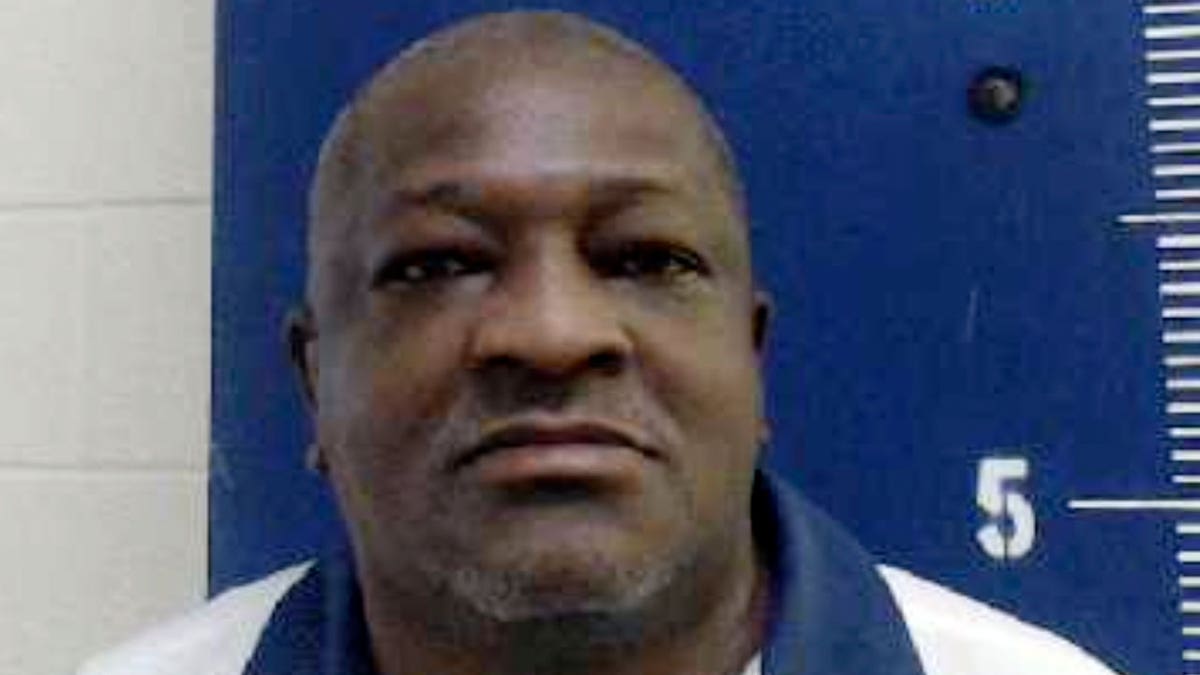Laken Riley murder: Georgia resident says local government put political agenda over citizens' safety
Laurie Camp, an Athens, Georgia resident, reacts to the mayor shouted down during a news conference over Laken Riley's murder on 'Fox News @ Night.'
A man who killed his former girlfriend three decades ago is set to be put to death in March in what would be Georgia's first execution in more than four years.
A judge on Thursday signed the order for the execution of Willie James Pye, who was convicted of murder and other crimes in the November 1993 killing of Alicia Lynn Yarbrough. The execution is scheduled for March 20 at 7 p.m., after the judge set an execution window between noon that day and noon on March 27.
Pye, 59, would be the first person executed in Georgia since January 2020. Georgia executions are carried out at the state prison in Jackson by injection of the sedative pentobarbital.
IDAHO FAILS TO EXECUTE FIVE-TIME MURDER CONVICT THOMAS EUGENE CREECH
Because of the coronavirus pandemic, executions were effectively halted for a certain group of people on Georgia's death row by an agreement between their attorneys and the state. Pye's lawyer cited that agreement when asking a court Wednesday to prohibit the state from seeking an execution warrant against him for the time being.
Pye and Yarbrough had dated on and off, but at the time of her death Yarbrough was living with another man, according to court filings. Pye, Chester Adams and a 15-year-old boy had planned to rob that man and bought a handgun before heading to a party in Griffin, prosecutors have said.
The trio left the party around midnight and went to the house where Yarbrough lived, finding her alone with her baby. They forced their way into the house, stole a ring and necklace from Yarbrough and took her with them when they left, leaving the baby alone, prosecutors have said.

Willie James Pye is seen in this Georgia Department of Corrections photo. (Georgia Department of Corrections via AP)
They drove to a motel, where they took turns raping Yarbrough and then left the motel with her in the teenager's car, prosecutors have said. They turned onto a dirt road and Pye ordered Yarbrough out of the car, made her lie face down and shot her three times, according to court filings.
Yarbrough's body was found on Nov. 17, 1993, a few hours after she was killed. Pye, Adams and the teenager were quickly arrested. Pye and Adams denied knowing anything about Yarbrough's death, but the teenager confessed and implicated the other two.
The teenager reached a plea agreement with prosecutors and was the main witness at Pye’s trial. A jury in June 1996 found Pye guilty of malice murder, kidnapping with bodily injury, armed robbery, rape and burglary, and sentenced him to death.
Pye's lawyers had long argued in courts that he should be resentenced because his trial lawyer didn't adequately prepare for the sentencing phase of his trial. Pye's lawyers argued that his trial attorney failed to do a sufficient investigation into his "life, background, physical and psychiatric health" to prevent mitigating evidence to the jury during sentencing.
They presented evidence that his childhood was characterized by poverty, abuse and neglect. They also argued that he suffered from frontal-lobe brain damage, potentially caused by fetal alcohol syndrome, that harmed his ability to plan and control his impulses.
A federal judge rejected those claims, but a three-judge panel of the 11th U.S. Circuit Court of Appeals agreed with Pye's lawyers in April 2021. But then the case was reheard by the full federal appeals court, which overturned the panel ruling in October 2022.
Adams, now 55, pleaded guilty in April 1997 to charges of malice murder, kidnapping with bodily injury, armed robbery, rape and aggravated sodomy. He got five consecutive life prison sentences and remains behind bars.
When Georgia courts were under a judicial emergency because of the coronavirus pandemic, lawyers for a group of people on death row entered into an agreement with the office of state Attorney General Chris Carr to temporarily suspend executions and establish conditions under which they could resume.
The agreement said that, with one named exception, executions wouldn’t resume until six months after three conditions had been met: the expiration of the state’s COVID-19 judicial emergency, the resumption of normal visitation at state prisons and the availability of a COVID vaccine "to all members of the public."
The agreement applied to death-sentenced prisoners whose requests to have their petitions reheard were denied by the 11th Circuit while the judicial emergency was in place. That agreement is currently the subject of litigation in Fulton County Superior Court with executions for the prisoners in question on hold for now.
CLICK HERE TO GET THE FOX NEWS APP
Pye’s lawyer argued in a court filing Wednesday that he qualifies as a third-party beneficiary of that agreement even though the 11th Circuit’s final rejection of his request for a rehearing came in March 2023. He asked the court to allow him to join the pending litigation, which would protect him from execution for the time being.
Lawyers for the state responded in a filing Thursday that Pye was not covered by the agreement and should not be allowed to join the pending litigation.
The judge who signed the execution order also wrote that Pye is not part of the agreement and that it, therefore, does not prevent his execution from proceeding.










































